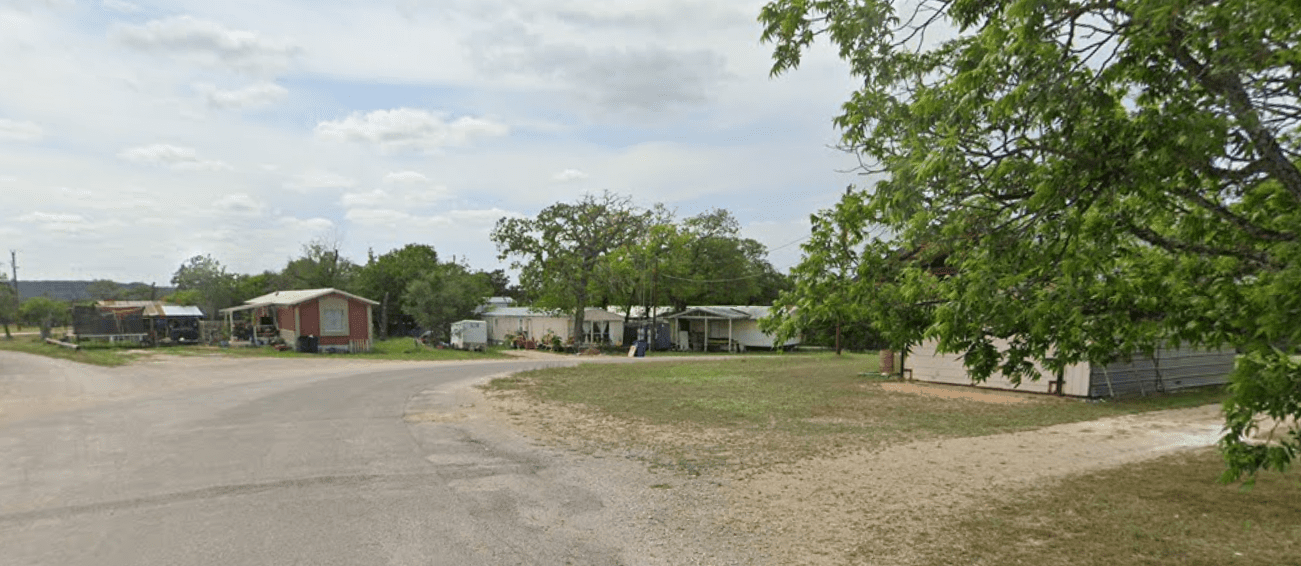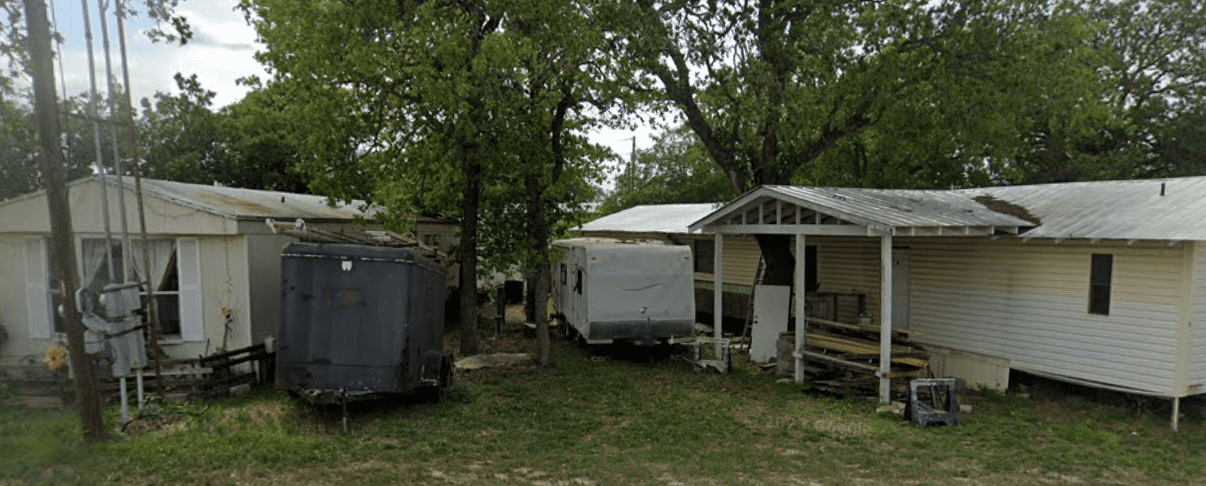Just outside Fredericksburg, Texas — a town known for its scenic vineyards, German charm, and skyrocketing real estate — sits a mobile home community many locals don’t even know exists. In Gillespie County, Bernhard Trailer Park is home to 60 residents who have built their lives in this quiet pocket of Central Texas. But for years, they’ve shared a silent burden: elevated nitrate levels in their well water.

Mitzie Dolgener inherited the park several years ago. She doesn’t sugarcoat the reality of running it.
“Honestly, it’s a pain,” she said. “But people live here because it’s affordable — and I want to keep it that way.”
Dolgener rents five trailers herself — three-bedroom units that are clean, functional, and go for $875 per month. She also provides lots for other mobile homes, charging $460 monthly. Even with a recent increase, it’s far below market rate for Fredericksburg, one of the most expensive areas in the Hill Country.

Still, affordability comes at a cost. With water included in the rent and no individual meters, it’s been nearly impossible to build financial reserves for infrastructure upgrades. And when the Texas Commission on Environmental Quality (TCEQ) flagged nitrate in the water supply, the park’s fragile model was suddenly at risk.
“Most people around here drink bottled water anyway, so it didn’t cause much disruption at first,” Dolgener said. “But when TCEQ got involved, we were warned we could be fined if we didn’t address it.”
Connecting to Fredericksburg’s city water system might have been the most obvious solution. The city’s water lines sit just 150 yards away. But Fredericksburg declined to offer service — citing the park’s location outside city limits. That left Dolgener with only costly options, including the potential installation of nitrate removal equipment she simply couldn’t afford.
“I might have had to shut the park down,” she said. “That would displace people who have lived here for decades. It’s not about me — it’s about them.”
In early 2024, hope arrived when water consultant Steven Walden referred Bernhard Trailer Park to the Community Infrastructure Team at Communities Unlimited (CU). CU’s Central Texas Coordinator Kayley Westbrook got to work right away.
Westbrook helped Dolgener complete a Project Information Form (PIF) for the Texas Water Development Board (TWDB) — a critical first step in applying for funding through the State Revolving Fund (SRF). Once accepted and prioritized, the two worked closely to gather documentation, coordinate with engineers, and submit the full SRF application.
“Kayley has been kind, patient, and extremely helpful — especially since I’m not the most tech-savvy person. She’s explained everything, helped with paperwork, and always gave us enough time to meet deadlines. I couldn’t have asked for better support.”
— Mitzie Dolgener, Owner of Bernhard Trailer Park
By March 2025, the application was marked “administratively complete,” moving the $785,680 project into technical review. If approved, the funds will cover the cost of a new well, finally eliminating the nitrate contamination and securing clean drinking water for every resident in the park.
For Dolgener, the impact goes far beyond public health.
“It really comes down to health and stability,” she said. “This project could prevent families from losing their homes. If we get the well, we don’t have to shut down — and that means everything to the people who live here.”
CU isn’t stopping at the application, either. The organization continues to assist Dolgener with additional compliance documents, including a Cross-Connection Control Plan and an updated Operations and Maintenance Plan, helping build a stronger foundation for long-term operations.
Bernhard Trailer Park may be small, but its story carries weight. It’s a story of perseverance against red tape, of working families holding on to affordable housing in an increasingly unaffordable town, and of what’s possible when partnerships are built on trust and purpose.
With the right support at the right moment, even the most rural communities can go from barely getting by — to finally getting ahead.

